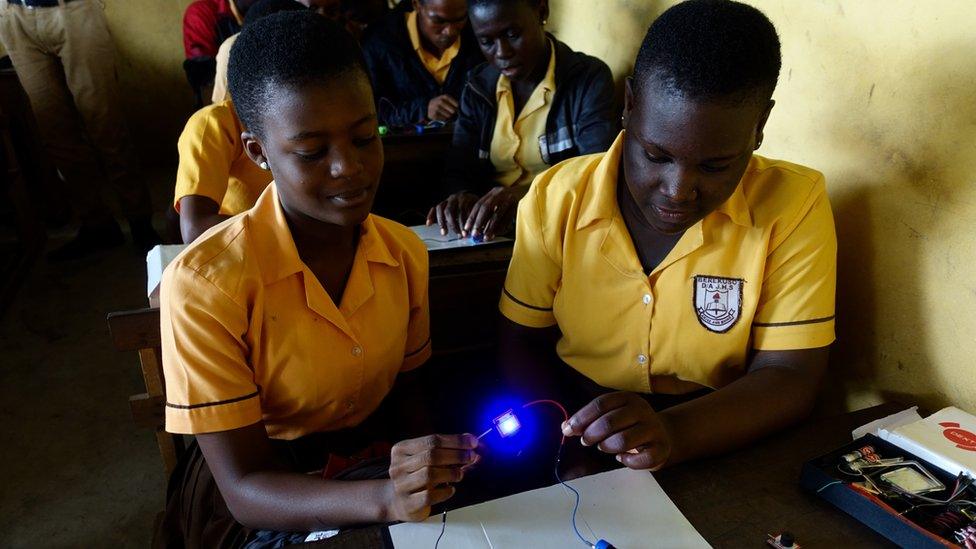The push towards artificial intelligence in Africa
- Published
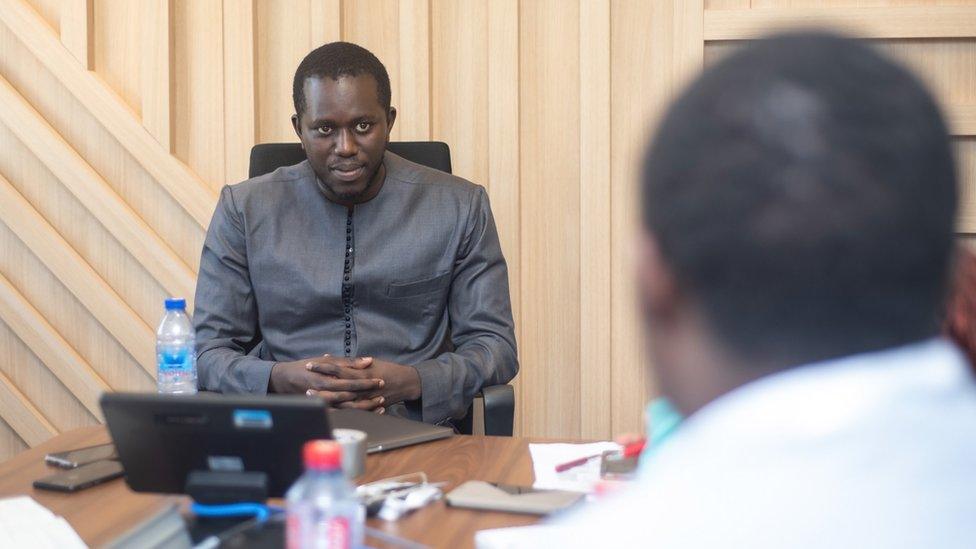
Google Africa's head of AI Moustapha Cisse
Artificial intelligence (AI) is one of the most exciting technologies today, and Africa doesn't want to be left behind.
Today a majority of the AI industry is in North America, Europe and Asia.
Efforts are being made to train computer scientists from African nations, as AI can be used to solve many complex challenges.
In a bid to improve diversity, tech giants are providing investment to develop new talent.
In April, Google opened its first African AI research centre in Ghana.
The AI laboratory, based in Accra, will be used to develop solutions to help improve healthcare, agriculture and education.
Overcoming obstacles
Google's head of AI Accra Moustapha Cisse is from Senegal.
After completing an undergraduate degree in maths and physics in Senegal, he taught himself AI and then went to study in Paris, before joining Facebook.
There are very few AI researchers from Africa, and Mr Cisse has faced great obstacles in achieving his ambitions.
"Despite the support, many of us still have trouble making it to conferences. I have had papers accepted at meetings but been unable to attend because Western countries such as Australia denied me a visa, even though I was already settled and working professionally in Europe," he wrote in his blog.
"We need more efforts to overcome these barriers and to ensure that the benefits of AI arrive globally."
He has long been concerned that AI is a missed opportunity for improving African lives, and that the AI industry is missing out on talent from African nations, because they do not have access to the right education.
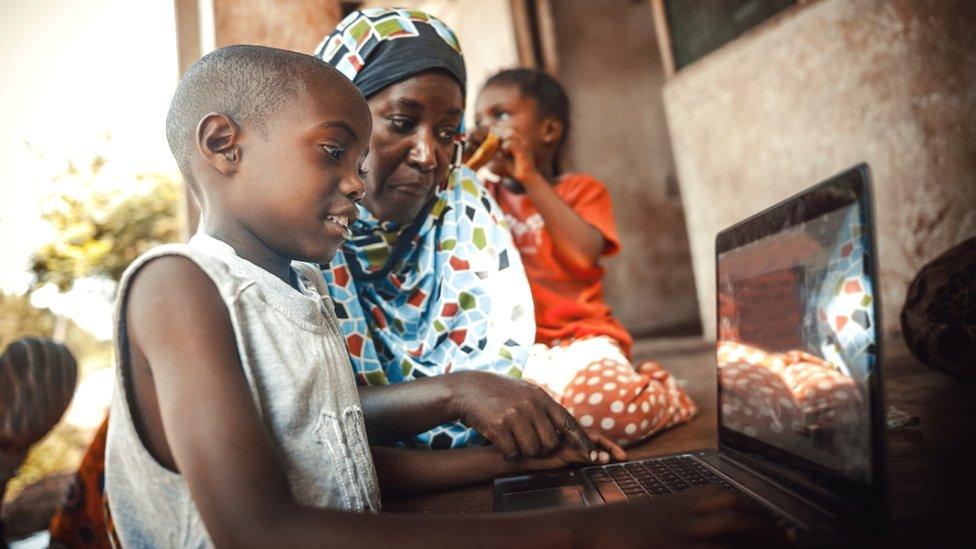
There are concerns young people in Africa are unable to join the global IT industry as they do not have access to the education they need
Today people often have to travel out of the continent in order to gain the IT skills they need, before returning to Africa to try to build new businesses.
To solve this problem, Mr Cisse has long advocated for better AI education across the continent, and he wants African governments to see AI as a key priority and support efforts to use AI for the good of humanity.
"AI has a lot to offer to Africa and Africa has a lot to offer to AI as well," he told the BBC.
"AI can help accelerate discoveries in various sciences, and it can help in areas where our human expertise is not enough."
Enhancing IT in Africa
One key area Mr Cisse believes AI can be a big help in Africa is in improving healthcare by automating diagnosis of diseases.
He also thinks that using AI to automate translations would make it much easier for African nations to communicate and do business, since there are 2,000 languages being spoken on a daily basis on the continent.
But in order to advance AI developments, Africa needs a robust IT industry.
In Kigali, the capital of Rwanda, the African Institute for Mathematical Scientists (AIMS) is running a one-year Masters degree programme in partnership with Facebook and Google to create the next generation of tech leaders.
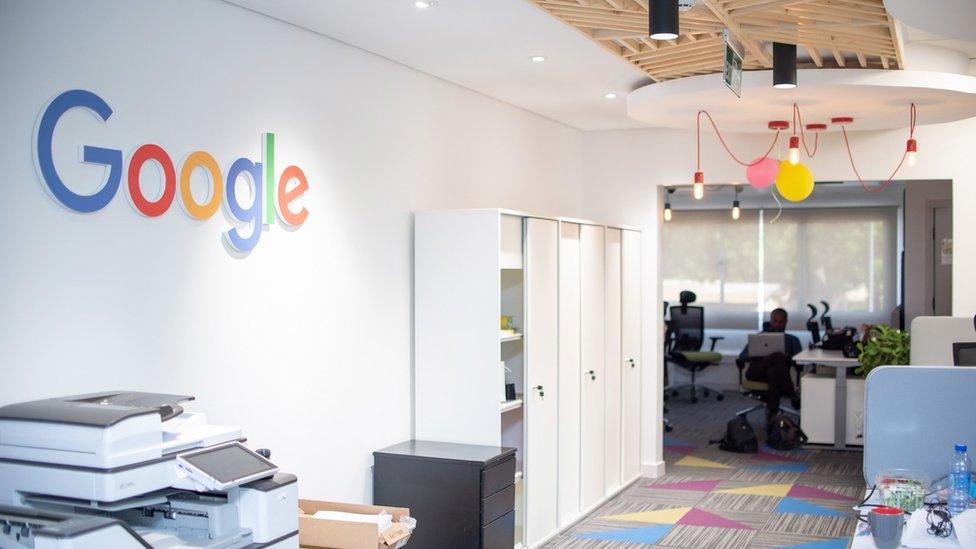
The Google Africa AI research centre in Accra, Ghana
The degree is the first Masters programme of its kind on the continent.
Talented scientists and innovators drawn from various African countries are being trained in machine learning, a type of AI.
"When we have young Africans working on this topic, we can imagine that they will easily be addressing some global challenges that our continent is facing," AIMS Rwanda president Dr Sam Yala told the BBC.
"When they are trained, some of them will work at universities and it's a way our students can pass their skills on to others."
- Published28 March 2019

- Published1 March 2019
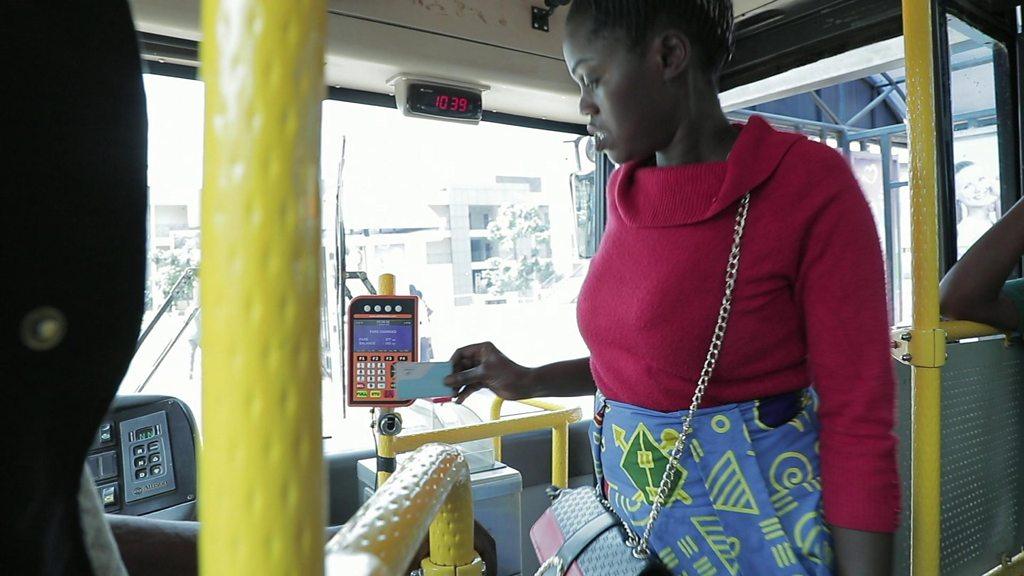
- Published11 September 2018
